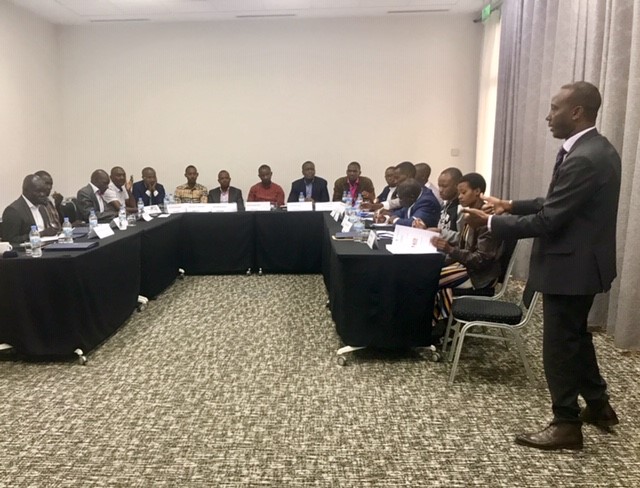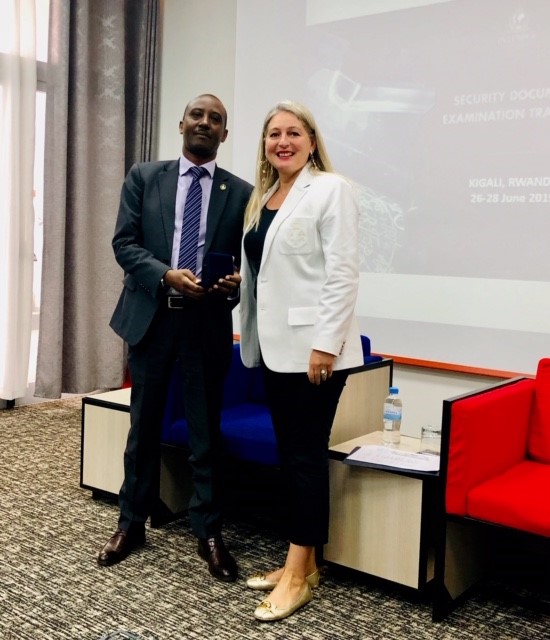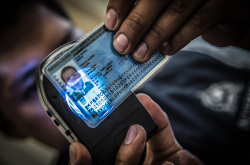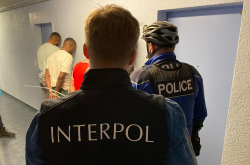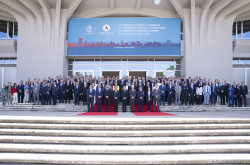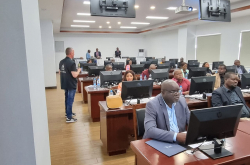KIGALI, Rwanda – With border points crucial to national and international security, 20 border control officers and forensic document examiners in East Africa have been trained in the latest security document examination techniques.
The three-day (26 – 28 June) security training course, jointly delivered by INTERPOL’s Counterfeit and Security Documents Branch (CCSD) and international security printing company Gemalto, enabled regional experts to examine new printing methods, the latest document security features, recent document verification technologies and current examination techniques.
The Head of the INTERPOL National Central Bureau in Kigali, Jean de Dieu Gatabazi, underlined the importance of knowing how to detect fraudulent documents which facilitate the smuggling of migrants, trafficking in persons, drugs smuggling and mobility of terrorists. “Enhancing security documents examination capacities is essential in helping countries prevent and combat identity-related crimes,” he said.
A key objective of the training was to develop the knowledge and expertise of participants in recognizing fraudulent documents and increase communication between border and immigration control officers.
The Coordinator of INTERPOL’s Counterfeit Currency and Security Documents Branch, Daniela Djidrovska, highlighted the importance of bringing together the ‘chain of custody’ authorities to exchange their knowledge on handling evidence and use of the INTERPOL Travel Document Reference Center to facilitate travel document examination and investigation.
In this respect the 4th joint CCSD- Gemalto Security Document Examination Train-the-Trainer course aimed to strengthen the region’s ability to detect criminals and terrorists at border controls.
Lovro Persen, Security Document and Product expert for Gemalto, a Thales company, highlighted the importance of partnering with INTERPOL: “This training highlights the need for cutting-edge solutions for document production and verification where the knowledge and expertise on the latest trends on document fraud are exchanged by countries in the African region.”
Participants at the training course came from four INTERPOL member countries: Rwanda, Zambia, Tanzania and South Sudan




